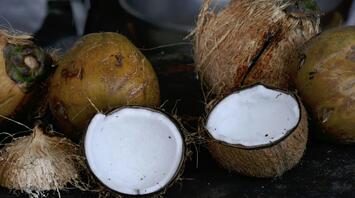Forbidden Fruit Not Allowed on Planes Due to Fire Risk

Travellers are being warned about a surprising item that is strictly prohibited on planes due to its potential to 'spontaneously combust.' According to the International Air Transport Association's (IATA) Dangerous Goods Register, dried coconut meat, also known as copra, is among the banned substances for flights.
While whole coconuts are allowed in both hand luggage and checked baggage, the issue lies with the dried coconut meat inside. Copra contains a high oil content, making it highly flammable and a significant fire risk. As a result, it is prohibited in both carry-on and checked luggage.
The IATA classifies dried coconut as a Class 4 Dangerous Good, identifying it as a flammable solid. This categorization means that copra is prone to spontaneous heating under the normal conditions encountered during air transport. This makes it as hazardous as matches, firelighters, metal powders, and sodium batteries, all of which are also on IATA's Dangerous Goods list.
A statement from IATA highlights the organization's efforts to work closely with local governments and the International Civil Aviation Organization (ICAO) in developing effective and operationally practical regulations. The IATA Dangerous Goods Regulations (DGR) manual is the global reference for shipping dangerous goods by air and the only standard recognized by airlines.
The Civil Aviation Authority (CAA) has also listed highly flammable coconut meat among the items prohibited from being carried in hand luggage. Other interesting items on the list include hoverboards, mercury thermometers, and "smart luggage" with batteries. Thankfully, there have been no reports of coconuts exploding on planes, but the caution remains due to the significant fire risk they present.



















